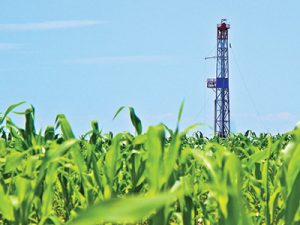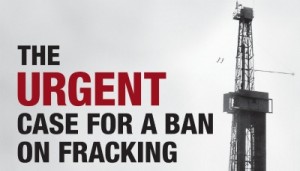Brussels — On the eve of a key meeting of EU Member State representatives, Food & Water Europe today called on EU Member States to reject the application to authorise imports of a new so-called “stacked” GM maize. Citing its new report, Superweeds: How Biotech Crops Bolster the Pesticide Industry, the organisation says it is time to admit that the GM technology cannot deliver on its promises and instead has caused escalating problems the EU can no longer ignore.
“For nearly 20 years, herbicide-tolerant GM crops have been marketed as a way to improve yields, lower costs for farmers and reduce agriculture’s environmental impact. Not only have these claims not held up, they’ve backfired,” said Wenonah Hauter, Executive Director of Food & Water Europe. “The chemical arms race that industrial agriculture is waging against weeds in the U.S. is not working and is doing incalculable harm to our environment and human health.”
SmartStax maize, a joint Monsanto and Dow AgroSciences product, is an attempt by industry to address the rapid spread of glyphosate-resistant superweeds and insects as a result of existing GM cultivation – genetically modified to produce six internal insecticides and tolerant to both glyphosate and glufosinate. By combining multiple resistance genes into the crop the companies behind it hope it will slow the spread of superweeds, but Food & Water Europe points out that it is precisely these combinations that are the problem. The safety of the GM genes has been assessed individually, but the effects on people, livestock and the environment are unknown. They are also likely to make on-farm problems worse, not better, including leading to the use of far more dangerous chemicals like 2-4,D when new resistance inevitably emerges.
Despite being genetically modified with the sole purpose of helping farmers fight weeds, glyphosate-tolerant GM crops, primarily Monsanto’s Roundup Ready maize, have spurred a crisis of weed management for farmers. The Food & Water Europe report released today analyses U.S. Department of Agriculture and Environmental Protection Agency data to show the connection between the rapid proliferation of GM crops and affiliated pesticides in the United States and the rise of herbicide-resistant “superweeds” that have led to the steadily increasing use of more dangerous herbicides. The widely-used glyphosate herbicides have become ineffective as the weeds develop stronger resistance due to continuous over-exposure to the chemical. As glyphosate proves to be increasingly ineffective, more farmers are turning to more dangerous herbicides, and the biotech industry is keen to provide new products it claims will help ease the crisis.
Food & Water Europe EU Food Policy Advisor Eve Mitchell said, “European politicians and regulators need to heed the warning that GM crops are an escalation of weed management problems, not a solution, and to reject all applications for Roundup Ready or other herbicide tolerant GM crops for import or cultivation, starting with SmartStax maize. We should not grow them in the EU because they cause harm and set back sustainable farming. We should not import them because these problems are now sufficiently serious that is it no longer acceptable to turn a blind eye by encouraging this GM production elsewhere. Europe cannot claim to foster sustainable farming or sustainable development if it is exporting the damage caused by its choices to other countries and expecting those communities to pay the price.
“Rather than extending GM use, which we know consumers reject, we want clear labels on food products showing where GM is and isn’t used as ingredients or feed. Continuing to sell meat and eggs using hidden GM feed while adding more dangerous, untested combinations to the chain is simply unacceptable. The market can’t function properly if shoppers don’t know what they are buying.”
The report also examines the costs associated with GM crops and herbicide-resistant weeds, including reduced yields, increased effort to combat weed infestations and resulting increase in pesticide exposure and chemical residues that harm public health, the environment, wildlife and water quality.
The “Superweeds” Report is available here: http://documents.foodandwaterwatch.org/doc/superweeds_eu_version.pdf
And an accompanying video based on the report can be found here: http://fwwat.ch/superweedvideo
Contact: Eve Mitchell, +44 (0)1381 610 740 or [email protected]
 The oil and gas industry likes to promote fracking as a boon to farmers and rural communities, but the dream often turns into a nightmare. In the United States, fracking has polluted water wells, sickened people and livestock, and reduced available farmland — proving that fracking and a healthy food system are not compatible.
The oil and gas industry likes to promote fracking as a boon to farmers and rural communities, but the dream often turns into a nightmare. In the United States, fracking has polluted water wells, sickened people and livestock, and reduced available farmland — proving that fracking and a healthy food system are not compatible.


